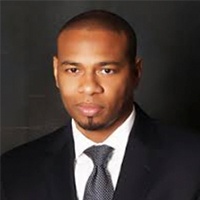Hudson Estate Lawyer, Florida
Sponsored Law Firm
-
 x
x

Click For More Info:
-
Onias Law, P.L.
1825 NW Corporate Blvd, Suite 110, Boca Raton, Florida 33431» view mapEstate: Your Trusted And Dependable Legal Home
Our goal is to develop lifelong clients and provide them with invaluable counsel that can be utilized far after a matter has been resolved.
800-810-4820
Eloise Taylor
Real Estate, Trusts, Family Law, Civil Rights
Steven Trabayko Meiller
Animal Bite, Estate Planning, Wills, Estate Planning, Wills
Status: In Good Standing *Status is reviewed annually. For latest information visit here Licensed: 35 Years
Steven Meiller
Animal Bite, Estate Planning, Commercial Real Estate, Wills
Status: In Good Standing *Status is reviewed annually. For latest information visit here Licensed: 35 Years
 Marlon Onias Boca Raton, FL
Marlon Onias Boca Raton, FL AboutOnias Law, P.L.
AboutOnias Law, P.L. Practice AreasExpertise
Practice AreasExpertise